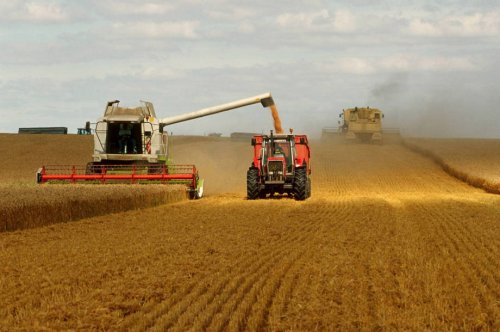SOL | 17 March 2017
The subsidies to the EU exports of cereal products to West Africa in 2015 and 2016
by Jacques Berthelot (jacques.berthelot4@wanadoo.fr)
Outlook
Introduction: the risks that West Africa’s imports of cereals explode
I – The subsidies to the EU28 exports of cereal products to West Africa in 2015 and 2016
II – The subsidies to the EU28 exports of cereal products to Ivory Coast in 2015 and 2016
III – The subsidies to the EU28 exports of cereal products to Ghana in 2015 and 2016
IV – The subsidies to the EU28 exports of cereal products to Nigeria in 2015 and 2016
V – The subsidies to the EU28 exports of cereal products to Senegal in 2015 and 2016
Conclusion
Introduction: the risks that West Africa’s imports of cereals explode
The EU-West Africa (WA)’s Economic Partnership Agreement (EPA) has planned to reduce to 0 the import duty (ID) on non-rice cereal imports from the European Union (EU) at the beginning of the liberalization period, in year T+5, knowing that it is already at only 5% from all origins. Although this elimination is the choice of WA and has not been formally imposed by the EU, the EPA prohibits any increase in the future unless the EU agrees temporarily.
Wheat is by far the main imported cereal excluding rice, with an import growth rate of 5.78% from of all origins between 2001 and 2013, compared with 2.75% for the population, implying a growth rate of wheat consumption per capita of 2.95%, from 13.76 kg to 19.50 kg. The extension of this growth rate would result in a consumption of 55.53 kg per capita in 2050 and imports of 44.3 million tonnes (Mt) as against 6.5 Mt in 2013, with a population rising from 334 M inhabitants in 2013 to 798 M in 2050. Already the consumption per capita would be of 31 kg in 2030 and imports of 16 Mt for a population of 516 M inhabitants, then equal to that of the EU28 which will stagnate.
This is an unsustainable prospect for several reasons, of which the impossibility of financing these imports since the yield of wheat has reached a ceiling in the Western exporting countries for 20 years, and it should decrease with their desire to reduce chemical fertilizers and pesticides. Faced with a declining supply, wheat prices will only explode as the Arab and West Asian countries will have more purchasing power to import because they lack the ecological potential of sub-Saharan Africa to diversify their food production. The change in the WA diet is all the more necessary in view of the need to increase rural employment – with the rural population rising from 169 M in 2010 to 221 M in 2030 and 255 M in 2050 – hence the production of local cereals and tubers by protecting them from competition of imported wheat. This is all the more justified for imports from the EU – which are largely dominant in WA francophone countries – than it subsidizes them very strongly as shown in this document.
Several efforts have been made in some WA countries to try to reduce wheat imports, in particular by incorporating a minimum of local cereals into wheat baguettes. This is particularly the case in Senegal, where ASPRODEB (Senegalese Association for the Promotion of Development at the Ground, the operational arm of CNCR, the National Rural Coordinating Council) is carrying out a joint project with the Bakers’ Federation and the Food technology Institute, financed by the World Bank, for bread incorporating 15% of local cereals . While ASPRODEB is targeting mainly urban consumers, SOL has been training since 2011 traditional informal bakers with breads incorporating 30% of local cereals . Despite the very positive aspects of these actions, however, they require a much higher percentage of wheat than of local cereals and WA should simultaneously promote the consumption of wheat-free food products, as in Latin American countries where maize tortilla remains the basic staple in Mexico and Central America and cassava pizzas are also much consumed in Brazil. Supplemented with beans these two products allow a balanced diet and much cheaper than wheat bread or pasta.
